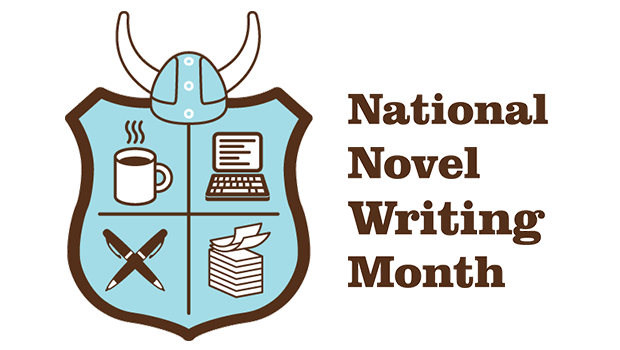Panic, desperation and plot twists: NaNoWriMo through the years
It’s just after midnight and I’m desperately typing out the final hundred words that I need to make my daily count of 1,667. If I finish it before I go to sleep, it still counts, right?
Such is the desperation and panic of a person entrenched in the middle of National Novel Writing Month, also known as NaNoWriMo or “that writing thing that people only finish if they’re completely insane.”
The goal of NaNoWriMo is to write a 50,000-word novel in the 30 days of November. It began in July 1999, when founder Chris Baty and 20 of his friends decided they didn’t have anything better to do. The next year, the event moved to November and gained 120 more participants. Then, in 2001, participation jumped up to near five thousand and has only grown since. NaNoWriMo 2015 welcomed over 430,000 writers, around 40,000 of whom “won” by passing the 50,000 word mark.
I first heard about NaNoWriMo in 2009. I was 14 and had started numerous stories, but I had never managed to finish one. Each time, I would get past the excitement of starting something new and into the part of the story where I actually needed to know where the plot was going and would give up, preferring to start something else so that I could go back to the exciting part.
Being homeschooled, I had plenty of free time and thought that it might be interesting to see how far into the event I could make it. With my longest story at that point only hanging around 20,000 words, a feat that had already taken me a couple of years to accomplish, I didn’t expect to finish.
On Dec. 1, I had a 62,463-word, completed novel. More than just a tangible word count, though, I had the newfound knowledge that I possessed the ability to actually finish a story. It wasn’t necessarily a good story, but the beautiful thing about NaNo is that good doesn’t matter. The simple fact that you sat down and you wrote 50,000 words is what’s really important. Making it good comes later, once you actually have something to revise.
Since 2009, I’ve written four more novels, each one for NaNo. Unfortunately, my sixth year of NaNoWriMo was also my first year of college, so that one only made it to around 16,000 words. The two I’ve done since have amounted to even less.
After five years of making it to the finish line, I found it difficult to come to terms with idea of not making it, but it only served to remind me of the real point of NaNoWriMo: having fun.
As with any art form, the only surefire way to get better at writing is to write as much as you can. Even if you write 50,000 words of a vampire romance novel that would make E.L. James look like Charles Dickens and then run it through a paper shredder so that it can be cleansed from this Earth, you’ve still written a novel and you’re still going to be a better writer for it. (You just might not want to let anybody read that one.) Each novel that I wrote taught me something about my own writing style and what kinds of things I really like to write about.
I found that there are a few different stages of NaNo. The beginning was always a thrill, full of the excitement of powering into a new and totally unexplored story. This was always followed, at some point, by a terrible slump of writer’s block when I became convinced that my story made no sense, was going nowhere, had bad characters or was no longer even a story that I wanted to tell.
Sometimes I got over these blocks with a good plot twist or some brainstorming. Sometimes I just powered through them until I hit 50,000 and looked back to see that maybe it wasn’t actually as bad as I had thought. I eventually realized that all of the blocks that had kept me from finishing my stories before could be solved by just continuing to write.
I’m sure that NaNoWriMo isn’t for everyone and I’m sure there are plenty of people out there who can write a novel without a 30-day deadline but, if you’re anything like me and just need to figure out how to get all of your words on the page, I would highly recommend giving NaNo a try. When approached with a mindset of accepting imperfection, it offers an amazing freedom to write whatever you want for a month (because hey, even if it’s terrible, you only spent a month on it, right?) while also providing just enough structure to keep you from getting lazy.
And you never know, maybe that story about a secret agent ninja assassin with superpowers that you’ve been too embarrassed to admit you want to write will become the next bestselling novel if only you give it the chance to be told.






